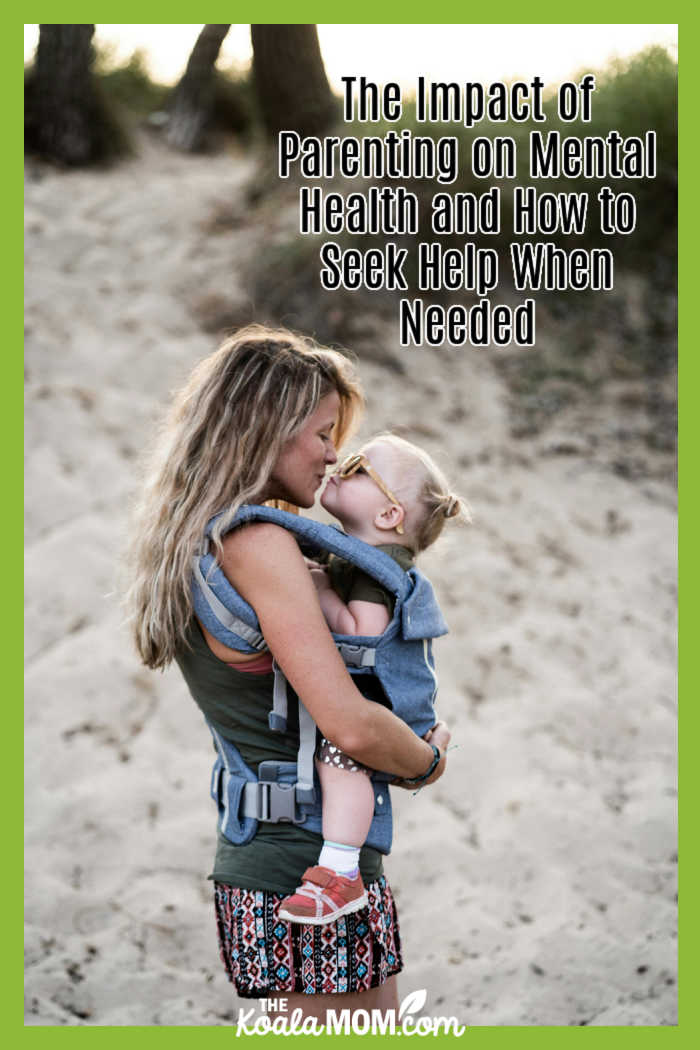Parenting is rewarding and challenging, shaping a child’s development while impacting parents’ mental health. The pressures of raising children can lead to stress and anxiety, affecting communication and emotional support. When parents struggle mentally, children may feel insecure and unsupported. To break this cycle, understanding the signs of mental distress is vital, along with recognizing when professional help is necessary.
 Seeking Professional Help
Seeking Professional Help
Many parents may feel reluctant to ask for assistance, seeing it as a sign of weakness. However, reaching out for therapy or joining support groups can provide invaluable resources and coping strategies. Professional help can lead to significant personal and familial improvements, from establishing mental health routines to effective communication and problem-solving skills.
If you or a loved one is struggling, consider contacting a licensed therapist, counselor, or mental health organization. Many services are now available via hotlines, making access to professional guidance easier. You can read more here on getting help as you take the first step toward positive change. Remember, seeking help is not only for crises—early intervention can prevent issues from escalating and contribute to a healthier, happier family life.
Finding time to see a therapist or counselor can be one barrier to seeking professional help. These days, however, many therapists are available via online video sessions, making it easier than ever to access professional help. Therapists have more flexible schedules, as some will work evenings or weekends. Get your spouse or a friend to watch your children, enroll your kids in a program at a local rec centre, or maybe even just put on a movie for them while you see your therapist. With some creativity, you can access the help you need.
The Stresses of Parenting
Parenting comes with an array of unique stresses that can take a toll on mental health. Everyday responsibilities, financial constraints, work-life balance, and societal expectations can create overwhelming feelings. Many parents may find themselves juggling multiple roles, sometimes leading to burnout. This chronic stress can affect their overall well-being and influence their interactions with their children.
Chronic stress can cause parents to become irritable and disengaged. This disengagement may lead to a lack of emotional availability for children, causing feelings of abandonment or inadequacy. Kids don’t see the reasons for their parents’ stress and unavailability and may blame themselves for their parents’ moods. In these instances, seeking help becomes even more pertinent, as it can lead to healthier family dynamics and an improved parent-child relationship.
In this era of parenting, moms often feel isolated and cut off from support. I live a province away from my parents and in-laws, and during times of increased stress or difficulty in our family, I’ve greatly regretted that distance. Many of my friends here in the lower mainland have their parents around to provide childcare and other help to their family. If you are also trying to parent without extended family help (or with a difficult relationship with your extended family), be aware of that lack of support and try to seek support in other areas, such as church and community.
Big life changes, such as job loss, moves, or divorce, can also create extra stress for parents. During these times, it is critical to be aware of your own mental health and to prioritize self-care and finding support for yourself so you can show up for your children as well. You may feel you can just push through this stress, as there is an end in sight, but being aware of your own stress can help you manage it better and determine when you need to ask for help, especially if things aren’t going as expected.
The Cycle of Anxiety
Anxiety is another common issue that can stem from parenting challenges. Parents may experience anxiety over their child’s health, education, or social interactions, or they may feel pressure to succeed as caregivers. This heightened state of worry can manifest in various ways, including sleep disturbances and irritability.
When parents operate in a constant state of anxiety, it can create a tense environment for children. Children may pick up on their parents’ distress, which can contribute to their anxiety levels. Addressing anxiety through relaxation techniques, therapy, or support groups can help parents manage their fears and establish a more nurturing atmosphere at home.
Parental Depression
Parental depression is often under-discussed, yet it profoundly impacts both parents and their children. Depression can lead to a lack of interest in activities that families usually enjoy, resulting in a significantly diminished quality of life. Symptoms such as fatigue, social withdrawal, and persistent sadness can interfere with the ability to parent effectively. The effects of depression on children can be significant, ranging from behavioral issues to impairment in cognitive development.
Recognizing these symptoms as early as possible is essential. Mental health professionals can provide the necessary tools and strategies to help parents cope, fostering a more favorable environment for their children. Seeking help can alleviate parental depression and pave the way for a happier family dynamic.
Evolving Parenting Styles
The pressures of parenting can lead to evolving styles that may start healthy but veer into negativity under stress. Authoritarian parenting, characterized by strict rules and high expectations, may emerge from parents dealing with their mental struggles. This style can inhibit children’s emotional growth and lead to issues with self-esteem.
Educating parents about the effects of various styles and encouraging more authoritative approaches, which balance strictness with warmth, is crucial. By seeking guidance, parents can transform their approaches, fostering resilience, independence, and confidence in their children. Seeking support or therapy can significantly aid in this transformation, leading to healthier outcomes for the whole family.
The Importance of Self-Care
Self-care is often overlooked by parents, who may prioritize their children’s needs over their own. However, neglecting personal well-being can lead to a decline in mental health. Incorporating self-care routines can significantly improve stress management and emotional resilience.
Simple practices such as regular exercise, meditation, or pursuing personal hobbies can rejuvenate parents, enabling them to engage positively with their children. When parents nurture themselves, they set a powerful example for children, teaching them the importance of self-love and mental health.

In navigating the demanding landscape of parenting, it is essential to acknowledge and address its impact on mental health. Both parents and children thrive in environments where mental well-being is prioritized. Families can cultivate healthier relationships that foster emotional growth and resilience by recognizing the importance of seeking help, embracing self-care, and understanding the effects of parenting styles.

No Responses Yet